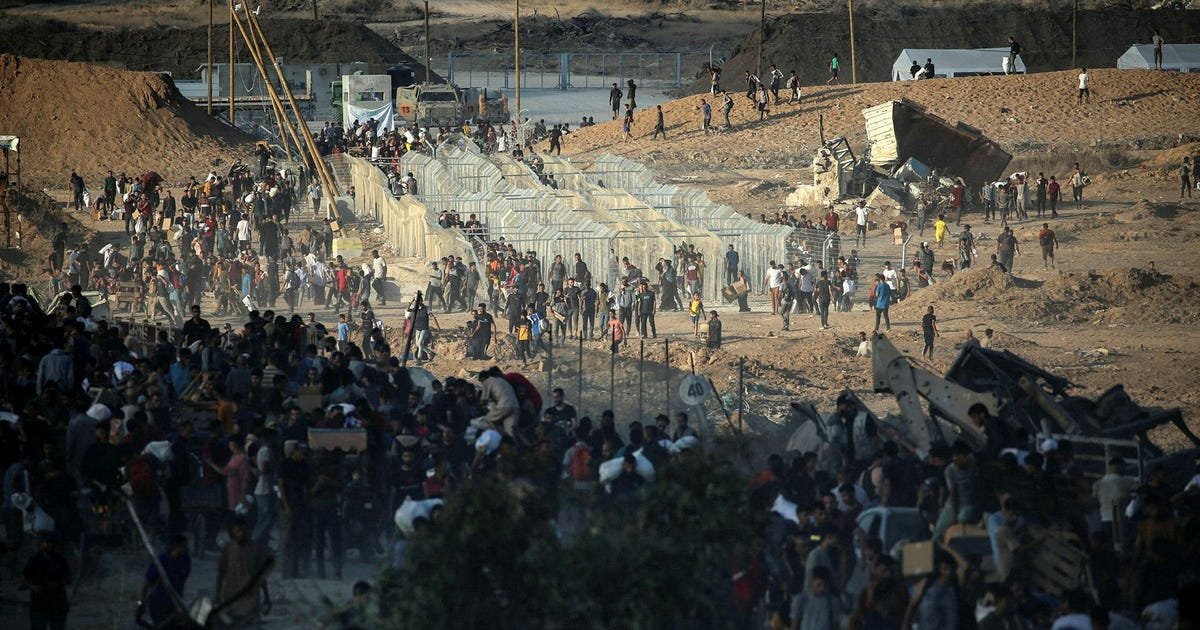Benjamin Netanyahu believes he can start reshaping the future of the Middle East
Copy link
twitter
facebook
whatsapp
email
Copy link
twitter
facebook
whatsapp
email
Copy link
twitter
facebook
whatsapp
email
Copy link
twitter
facebook
whatsapp
email
Benjamin Netanyahu was in favour. So, too, was Ehud Barak, his defence minister at the time in 2011. But Israel’s top generals and intelligence chiefs were aghast. An attack on Iran’s nuclear facilities, they feared, could result in tens of thousands of Israeli civilian deaths.
Months after retiring as Mossad chief that year, Meir Dagan – one of Israel’s most revered spymasters – even went as far as to call the idea “the stupidest I’ve ever heard”.
Yet 14 years later, despite widespread opposition at home and abroad, Mr Netanyahu’s boldest gamble appears to have paid off. In just 12 days, he humbled Iran at a cost much lower than even Israel’s most optimistic military planners would have dared hope.
When he walks into the White House on Monday, the Israeli prime minister’s meeting with Donald Trump will therefore have the feel of a Roman triumph. Both men will portray their battlefield success as vindication over the wishy-washiness of their critics.
But they are also thinking beyond victory laps. Mr Trump hopes to burnish his peacemaking credentials by brokering another ceasefire in Gaza. His guest will aim higher still, arguing that he has helped birth a new regional order – one that could mark the dawn of a golden era for Israel.
Since the horrors of Oct 7 2023, Israel has made a Herculean effort to sever the limbs of the Iranian Hydra – Hamas and Hezbollah – before going for the head itself as it launched its first direct war with a foreign state since 1973.
Mr Netanyahu now believes a legacy-defining peace dividend is within reach: new alliances with Arab states, containment of Iran and the isolation – perhaps even the marginalisation – of the Palestinians.
Several Arab states are seriously considering the Abraham Accords, says Gen Yossi Kuperwasser, former director-general of Israel’s Ministry of Strategic Affairs, referring to the 2020 deal that normalised relations with Bahrain, the United Arab Emirates, Morocco and Sudan.
“There is a golden opportunity,” he said. “Iran is weakened. The Iranian threat feared by many countries in the Middle East is much decreased. We are even talking about countries like Syria and Lebanon hopefully joining the Abraham Accords. Who would ever have dreamed that?”
But while Mr Netanyahu may have won the war, there is scepticism over whether he is the man to win the peace.
Much depends on whether he can reverse Carl von Clausewitz’s famous dictum and pursue diplomacy “as the continuation of war by other means”, says Col Eran Lerman, a former deputy national security adviser.
That Mr Netanyahu is even in a position to consider reshaping the Middle East would once have seemed miraculous. In 2010 and again in 2012, as he edged towards war with Iran, senior military and intelligence officials were so anxious they took to privately briefing The Telegraph and other Western media on the risks.
Iran’s Lebanese proxy Hezbollah had amassed such a vast missile arsenal they estimated retaliatory strikes could kill up to 50,000 people. Entire neighbourhoods of Tel Aviv would be reduced to rubble. The political cost – a possible rupture with Barack Obama, then US president – was also deemed too great.
In hindsight, Israel may have overestimated the potency of Iran’s proxies. By 2024, Israeli missile defences and battlefield intelligence had dramatically improved, allowing the Israel Defense Forces (IDF) to defeat Hezbollah in eight weeks last year and Iran itself in under a fortnight.
But this was not simply a 12-day campaign of air strikes and covert hits. It was the culmination of 46 years of hostility, dating back to 1979, when Israel made peace with Egypt, formerly its greatest foe, and lost Iran – once its closest regional ally – to revolution.
From the outset, the Islamic Republic waged an undeclared war on Israel, pledging its destruction and founding Hezbollah to fight Israeli forces in southern Lebanon. But for years Israeli strategists focused more on Palestinian militants than the Iranian threat – so much so that during the Iran-Iraq war in the 1980s, Israel secretly sold arms to Tehran through the Iran-Contra Affair.
After the first Lebanon war, Israel redoubled its efforts to penetrate Hezbollah. But in 2006, when Israeli troops re-entered southern Lebanon, the results were sobering.
The 34-day war ended in stalemate. Gen Assaf Orion, the IDF’s former head of strategic planning, calls it “not the brightest campaign we’ve run”.
Few understood that better than Gen Mickey Edelstein, then commander of the Nahal Brigade, who recalls how unprepared his troops were. Accustomed to small operations against Palestinian groups, they struggled with full-scale warfare.
Tactical goals were vague. Air support was inconsistent. Orders were sometimes contradictory.
“My brigade was shifted between three different divisions over the war,” he recalled. “We would go into Lebanon, be pulled back into Israel and sent out again with a different division. A lot of mistakes were made.”
After the war, senior commanders privately acknowledged failures in planning, command and intelligence – and lessons were learnt.
Soldiers were retrained for major warfare. When Gen Edelstein returned to battle in Gaza in 2014, the forces he led were significantly more capable.
Intelligence also underwent wholesale reform, said Col Lerman. “Intelligence in 2006 was clearly insufficient for the conduct of successful operations. After the war, there was serious self-questioning about how well intelligence was collected and how well it was distributed to forces on the ground.”
Amos Yadlin, then head of military intelligence, led sweeping changes that continue to shape Israeli warfare.
From 2006 on, Israel grasped the full extent of the Iran-Hezbollah nexus. Of the 121 Israeli soldiers killed in 2006, many died from Iranian-made weapons – some fired by Iranian troops embedded with Hezbollah, according to Israeli officials.
In the following years, Iran poured resources into Hezbollah, providing cash, training and ever more sophisticated rockets, missiles and drones. The goal was clear: build a deterrent so fearsome it would stop Israel from ever striking Iran’s nuclear programme.
But that scale became a vulnerability.
“From a nimble guerrilla organisation, it became an established army, requiring greater management,” said Gen Orion. “And with that came the exposures and weaknesses of larger organisations.”
Israeli intelligence infiltrated Hezbollah deeply. It even sold the group the explosive-laden pagers and walkie-talkies that maimed thousands of Hezbollah operatives over two days last September. Most of Hezbollah’s senior leadership, including its overall commander Hassan Nasrallah, was also assassinated thanks to what Col Lerman describes as a “deeply penetrating, co-ordinated effort stretching back decades”.
It wasn’t just personnel. Israeli planners had mapped Hezbollah and Iranian missile sites with such precision that they destroyed most launch capabilities before the first volleys were fired.
As a result, Israel was able to strike Iran, kill much of its leadership and damage its nuclear programme – and face far more muted retaliation than once feared.
Although 28 Israelis were killed and 15,000 lost their homes, neither Hezbollah nor Hamas launched a single rocket in Iran’s defence.
“Really the most dramatic aspect of all this is that the organisation exclusively built for one purpose – to punish Israel horrendously if it dared attack Iran – did not fire a single shot during 12 days of war,” said Col Lerman.
Israel has therefore emerged as the dominant military force in the region, with Mr Netanyahu’s allies believing they can dictate a new dispensation for the region. Yet how the Israeli prime minister uses that dominance is now a central question.
Since a ceasefire deal with Hezbollah in November, Israel has killed some 300 members of its fighters in targeted strikes – reportedly with the tacit consent of parts of the Lebanese government, which may now be looking to disarm the group entirely.
Covert action in Iran is also expected to continue.
Military action beyond Israel’s borders aside, however, what kind of future Mr Netanyahu envisions is up for debate.
There are three possible paths, says Eran Etzion, a former deputy head of Israel’s National Security Council and a critic of Mr Netanyahu.
One is to “live by the sword”, fighting a “forever war”, a view, he said, preferred by elements on the Right of Mr Netanyahu’s coalition, who argue Israel will never be accepted in the region.
Another is “conflict management” – continuing low-intensity fighting with Hamas, expanding West Bank settlements and perhaps trying to remove Palestinians from Gaza even while seeking friendship with Arab states.
“It’s a vision of perpetual war with the Palestinians while striking normalisation agreements with other Arab countries,” says Mr Etzion, who believes this is the strategy Mr Netanyahu is most likely to adopt.
The third option – long-term peace-building – is, in Mr Etzion’s view, off the table under the present government.
Critics warn that Mr Netanyahu’s vision of victory risks being both fragile and short-lived if it depends solely on violence. The idea that Israel can indefinitely deter aggression without addressing Palestinian aspirations may prove illusory.
Saudi Arabia, the biggest prize of all, insists that any Abraham Accords-style agreement requires progress towards a two-state solution. Crown Prince Mohammed bin Salman is thought to be eager for a deal, but without movement on a Palestinian state, his hands may be tied by public opinion, inflamed by the devastation inflicted on Gaza.
Lebanon and Syria may also see advantage in rapprochement with Israel. But public sentiment remains volatile in both countries, too.
Ahmed al-Sharaa, Syria’s new president, appears conducive to the idea of better ties, particularly as he seeks to rebuild relations with the West. But many members of his group, Hayat Tahrir al-Sham (HTS), are deeply hostile to Israel. A splinter faction recently claimed responsibility for a suicide bombing in a Damascus church that killed 25 people last month. Mr Sharaa may fear pushing his hardliners too far.
Israel, for all its strengths, may overreach.
It is “still numerically and materially inferior to the sum of all its potential enemies”, said Gen Orion. “Which is why it must retain its qualitative military edge and creative diplomacy.”
Meanwhile, unless a robust diplomatic agreement emerges, Iran is likely to attempt to rebuild the triad of threats that once made it so formidable: its nuclear programme, ballistic missile arsenal and regional proxy network.
“The regional landscape is shifting dramatically,” said Shai Agmon, a fellow at New College, Oxford and academic director of Molad, a liberal Israeli think tank. “Israel can reshape it to serve its own security interests and create a thriving regional order – or it can squander it.
“Israel is the strongest force around for now. But in the absence of a stable diplomatic resolution, Iran and its proxies will regroup and try to escalate the situation again.
“And unless the government is willing to consider a path towards regional peace – which necessarily entails some form of two-state solution, an idea it has so far refused even to entertain – it is hard to see how lasting stability will be achieved.”
Copy link
twitter
facebook
whatsapp
email
Is Israel on the brink of a golden age? – The Telegraph



